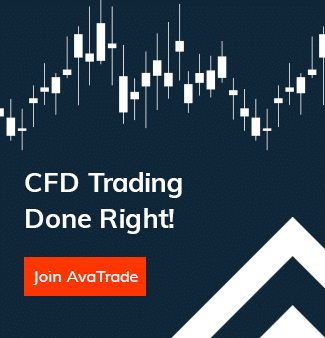Groupon Stock
| Instrument:groupon |
Groupon is a deal-of-the-day website that offers discounted gift certificates which can be used for purchases at local or national companies.
In November 2008, Groupon, a blend of the words ‘group’ and ‘coupon’, was launched, with its first deal being a two-for-one pizza offer at Chicago’s Motel Bar. This humble beginning marked the start of a meteoric rise that was followed by an even more dramatic fall in the fortunes of the company.
Groupon Stock Trading Information:
- MT4 Symbol: #GROUPON
- Trading Hours: Monday – Friday – 14:30-20:59 London Time GMT
- Country: USA
- Currency: USD
- Exchange: NASDAQ
- Leverage:
Start trading Groupon Stock CFDs with Friedberg Direct today!
Groupon’s initial success can be attributed to a business model that resonated with customers seeking the best deals and with the many small merchants who still wore the scars of the Great Depression. Each day, Groupon users would wait for emails from the company, anxious to see what was on offer. These email messages would contain deals from local businesses that would only become active once a particular number of vouchers had been sold.
Groupon had assembled a team of writers that would entice people with their wit and sarcasm and would also offer additional incentives to people who would spread the word to their friends. On the 4th of November 2011, Groupon held its initial public offering (IPO) on the NASDAQ stock exchange under the ticker GRPN. The company had priced its IPO at $20 a share, yet they opened at $28 a share, 40% above the target. Interestingly, the stock ticked up as high as $31.14 before falling back to a little below $28.29 a share at the close of market.
By the end of the day, Groupon had a valuation of more than $16 billion, and the company successfully raised $700 million. This IPO was the second-biggest tech IPO in history, behind the $1.7 billion Google raised in 2004. Groupon is listed in the Mixed Retailing Industry under the Retail/Wholesale sector. Groupon has had no stock splits, and they have never paid out dividends. From 2011, the company quickly established itself as one of the biggest tech success stories of the post-dot-com era. Even today, following several years of shrinking business, many people still praise Groupon as a triumph of Chicago’s tech scene.
Not only does it employ more than 1,500 people at its headquarters in Chicago, Illinois, it also employs thousands more in more than 50 countries. To top it off, some of the company’s initial investors – Brad Keywell and Eric Lefkofsky – are recognised as two of the most successful entrepreneurs in the city. However, following years of decline, the company is busy transitioning to a marketplace-first model, far different from its original strategy that depended on coupon-style deals offered on goods and services. In addition, its focus on the local services market is a move aimed at helping Groupon to make higher margins on sales. Although the new strategy is sound in theory, in reality, the company will likely have to sacrifice much of its revenues in the short term.
Groupon Stock History
Groupon was founded by Andrew Mason in 2008. At the time, he was a mid-20s graduate student who made ends meet by building websites. In the course of this work, he met tech tycoon Eric Lefkofsky and mentioned the ideas he had for Groupon. The billionaire was suitably impressed and offered him the funds he needed to get his idea off the ground.
Within two years of commencing operations, Groupon was making hundreds of millions of dollars each month in revenue, and the company itself was valued at several billion. At the time, the company was growing faster than Apple, Facebook or Google; and according to a December 2010 report in Forbes magazine and the Wall Street Journal, Groupon had projected that the company was on pace to make $1 billion in sales faster than any other business.
Then, as dramatically and just as quickly as Groupon had grown, the e-commerce giant’s fortunes changed. Due to a variety of factors, chief among them a host of more innovative competitors and changing market dynamics, Groupon’s share price dropped by almost 47% in just five short years, trading at less than $3 a share in November 2012. In 2013, when Groupon’s stock price failed to break past $4.80 a share, Mason was fired from his position as CEO.
At that time, Groupon’s investor and co-founder Eric Lefkofsky was made interim CEO, and then permanent CEO. He immediately announced plans for a $300 million stock buyback. As of 2015 and still today, the company is helmed by a new CEO, Rich Williams, who initially served as Groupon’s Senior Vice President of Global Marketing and CMO since June 2011. Williams has been working hard over the last three years on his project to transform the company. Interestingly, in the last three years, the company’s shares have moved completely sideways, still trading at $2.98 as of November 2018.
Williams’ multi-pronged strategy involves a raft of cost-cutting measures and a move toward doing business on a voucher-less mobile-based platform. This would be a departure from its fast-declining international model, which is still based on physical vouchers that are bought via desktop and marketed through email. Groupon has made many acquisitions over the years. Initially, the company bought similar deal-of-the-day services which were rebranded as Groupon. The most notable is the European-based MyCityDeal, which Groupon acquired in May 2010.
In January 2011, Groupon bought the Indian deal-of-the-day website SoSasta.com and re-branded it as “Crazeal by Groupon Inc.” In January 2012, the company acquired Mertado, a social shopping service based on the Facebook platform. Meanwhile, in February 2016, Alibaba Group Holding Ltd, the Chinese online retailer, disclosed that it had acquired a 5.6% stake in Groupon Inc. In April 2018, Groupon partnered with Universal Orlando theme parks, and in May of the same year, they acquired Bristol, a UK-based Cloud Savings company for $65million.
How to Trade Groupon Stocks
Over the years, many traders have made a lot of money trading Groupon stock, but obviously not by buying and holding onto the declining shares. For CFD traders though, who were able to predict the steady decline of the company and forecast the small, short-lived reversals, many profitable investments were made. Success while trading GRPN requires not only excellent technical analysis and accurate indicators, but it also requires that you pay particular attention to the following factors that have an effect on Groupon’s share price, both in the short-term and the long-term:
- Earnings Reports
Groupon saw its stock drop by more than 10% in the aftermath of the Q3 2018 earnings report. Because the company’s new strategy has so many moving parts to it, CEO Rich Williams decided that he would, starting with the last quarterly report, be writing a letter to the company’s shareholders each time results were announced.
This is an unusual move since most CEOs would probably only write a letter to their shareholders once a year, when releasing the firm’s annual report, instead of every quarter. The letter he wrote shed light on many of the problems that Groupon is facing and is trying to overcome, but also highlighted improvements that are down to the new initiatives. In order to gain insight into the company and any future plans, it would be wise to evaluate the letters from Rich when the company releases its earnings.
- New Product Rollout and Business Restructuring
While shareholders would have been alarmed to see a decline in revenues, gross profit and active users in the company’s earnings report, the CEO’s letter explained that the declines witnessed were somewhat deliberate.
With regard to the drop in gross profit, Rich William attributed it to the company’s moves aimed at “disrupting the legacy business” and moving its customers to the Groupon+ voucher-less application, which is linked to the customer’s credit card. He added that purchases that customers make on the Groupon+ platform are not captured as revenue until redeemed, as opposed to the voucher system where payments were made up front. Considering the impact of Groupon+ and the company’s sale of OrderUp completed last year, profits from North American operations are actually slightly higher, not down 7% as indicated in the Q2’ 2018 report.
- Competitors
One of the strengths that Groupon has (which later turned out to be a weakness) is the ease with which it could duplicate its local model in new cities. However, this also meant that competitors could just as easily mimic the company’s business model. Also, Groupon is shifting focus to a field that has more established marquees like Amazon and Alibaba. Its success or failure in handling this competitive environment will have a significant impact on its stock price action. Since Groupon is undergoing many changes, it is vital to look into the impact that all the factors mentioned above can cause in the short term, rather than in the long term when the Groupon stock price would have likely already accounted for them.
Disclaimer: This is a general analysis and not to be viewed or construed as actual trading advice or a recommendation of any kind and just an example of how a particular instrument could, potentially, be traded.
Why Trade Groupon Stocks with Friedberg Direct
- Regulation: Friedberg Direct, a division of the Friedberg Mercantile Group Ltd, is a member of the Investment Industry Regulatory Organization of Canada (IIROC) and a member of the Canadian Investor Protection Fund (CIPF).
- Leveraged Trading: Buying Groupon stock can be costly. However, Friedberg Direct offers you leveraged trading, which means you can take a trading position on this stock at just a fraction of what it would cost you to buy the actual share.
- Ability to Short Sell Groupon stock: Groupon is a company that still has to battle significant headwinds that are hampering its progress and growth. That being said, the CEO’s strategy is showing signs of success, and there will likely be periods of reversal and volatility. Short selling will allow you to profit from either rises or drops in the price.
- Advanced Trading Platform: Friedberg Direct provides its traders with the most popular trading platform on the market, MetaTrader 4. This platform is a tried and tested trading platform that is easy to use and offers a wealth of trading tools and features.
- Secure deposits and withdrawals: Thanks to high-level encryption of stored and transferred personal data, you can rest easy that your information is protected and safe.
- Customer Support: The Friedberg Direct technical support team is courteous, responsive and highly knowledgeable.
Looking to trade Groupon stock and a host of other CFDs with a regulated broker? Open an account with Friedberg Direct today!
Disclaimer: Please note these are stock CFDs (Contracts for Difference)
When you enter into a CFD trade you don’t buy the actual stock itself but instead agree on a contract with the broker to settle the difference in value between the entry and exit price of the Stock based on the price the stock is trading at on the Exchange it is listed. That means when you trade Stocks CFDs with Friedberg Direct you get a flexibility that stock market rules often make very difficult or even impossible for some.







